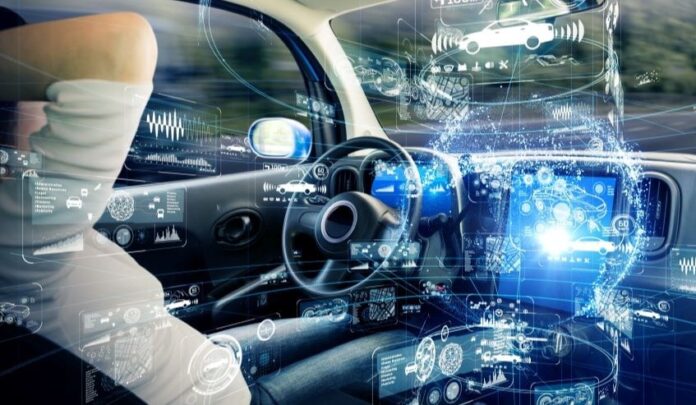The world of auto cars is constantly evolving, reflecting advancements in technology, consumer preferences, and environmental awareness. From the earliest vehicles that changed how humans traveled to the cutting-edge models of today, auto cars have shaped our lifestyles and economy in countless ways. In this towing company article, we explore the fascinating history of auto cars, their technological advancements, and what the future holds for this dynamic industry.
The Birth of Auto Cars
The concept of an auto car dates back to the late 1800s when inventors and engineers sought to create self-propelled vehicles. Karl Benz is often credited with inventing the first practical automobile in 1886. His three-wheeled Motorwagen, powered by an internal combustion engine, was the first step toward a revolution in personal transportation.
The early days of the automotive industry were marked by experimentation and innovation. The vehicles were rudimentary, but they offered a glimpse into a future where transportation no longer relied on animals or manual labor. In the early 20th century, Henry Ford’s introduction of the assembly line for mass production of the Model T drastically lowered the cost of cars and made them accessible to the average person. This marked the beginning of the era where auto cars became a fixture in everyday life.
Technological Advancements in Auto Cars
Over the decades, the auto industry has been defined by rapid technological progress. Early vehicles were simple machines compared to the modern cars we drive today. The introduction of the electric starter, automatic transmission, and hydraulic brakes greatly improved the user experience, making cars easier and safer to operate.
In the 21st century, cars have become smarter and more capable than ever before. Innovations like anti-lock braking systems (ABS), electronic stability control, and advanced airbag systems have made driving significantly safer. In-car entertainment systems, including GPS navigation, touchscreens, and voice control, have transformed the driving experience into something far more interactive and personalized.
One of the biggest shifts in the auto industry in recent years is the development of electric vehicles (EVs). Major automakers like Tesla, Nissan, and BMW have been at the forefront of this movement, introducing electric cars that are not only environmentally friendly but also high-performance. EVs rely on batteries rather than fossil fuels, producing zero emissions and helping to reduce the environmental impact of transportation.
The Rise of Electric Vehicles (EVs)
As concerns about climate change and air pollution grow, more consumers and governments are looking toward electric vehicles as a solution. EVs offer numerous benefits, including lower operating costs, reduced carbon footprints, and a quieter, smoother driving experience. They also contribute to the global effort to reduce greenhouse gas emissions by replacing gasoline-powered engines with cleaner, renewable energy sources.
Battery technology continues to improve, offering longer ranges and faster charging times for electric vehicles. Charging infrastructure is expanding rapidly, with more charging stations available in urban and rural areas alike. The future of auto cars will likely see even more innovations in EV technology, making electric cars more accessible and affordable for all.
Autonomous Vehicles: The Future of Driving
One of the most exciting developments in the automotive industry is the advent of autonomous or self-driving vehicles. Autonomous cars have the potential to revolutionize the way we think about driving. Using a combination of artificial intelligence (AI), sensors, and cameras, autonomous vehicles can navigate roads, interpret traffic signs, and make real-time driving decisions without human intervention.
Companies like Tesla, Waymo, and Uber are investing heavily in the development of self-driving technology. The benefits of autonomous vehicles include improved road safety (by eliminating human error), increased mobility for those unable to drive, and reduced traffic congestion. While fully autonomous cars are not yet mainstream, many vehicles already come equipped with semi-autonomous features such as adaptive cruise control, lane-keeping assist, and automatic emergency braking.
The Impact of Auto Cars on Society
The rise of auto cars has had a profound impact on society. Automobiles have transformed industries, economies, and urban planning. The growth of suburbs, the development of road networks, and the expansion of global supply chains all stem from the ubiquity of auto cars.
Moreover, the automotive industry has been a significant driver of job creation. Millions of people around the world are employed in manufacturing, sales, repair, and transportation-related services. Cars have also become cultural icons, inspiring everything from movies and music to car clubs and motorsports.
Challenges and Opportunities Ahead
As the auto industry moves forward, it faces both challenges and opportunities. Environmental concerns are driving the push for cleaner, more efficient vehicles, which has led to the rapid growth of electric vehicles. However, the transition from fossil fuels to electric power will require significant investment in infrastructure, from charging stations to energy grids capable of supporting increased demand.
Another challenge is the development of autonomous vehicles. While the technology is progressing rapidly, there are still regulatory, legal, and ethical questions to address. For example, how should an autonomous vehicle react in an unavoidable crash situation? These are complex issues that need to be resolved before self-driving cars can become a reality on a global scale.
The Future of Auto Cars
The future of auto cars is undeniably exciting. As technology continues to advance, we can expect cars to become even more integrated with our digital lives. Connected cars, equipped with internet access and capable of communicating with other vehicles and infrastructure, will lead to smarter and more efficient transportation systems. Electric and autonomous vehicles will further reduce emissions, improve safety, and change how we interact with cars.
The continued evolution of auto cars represents a thrilling chapter in human innovation. Whether through electric power, self-driving technology, or new forms of connectivity, the journey of the automobile is far from over. As we look to the horizon, it’s clear that auto cars will continue to shape the world in ways we can only imagine.


